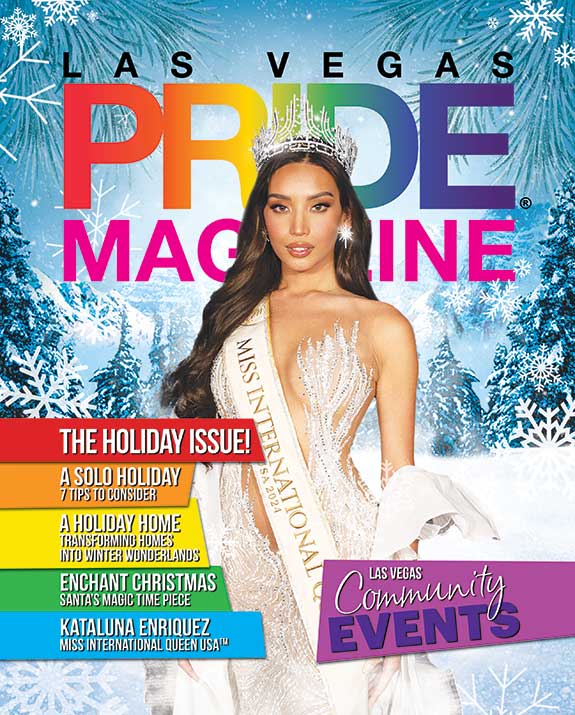Exclusively Inclusive
By Karen Brain
Getting married wasn’t something I thought we wanted. At least, I wasn’t sure it was something I wanted. As an adult, I always started my relationships with something like 1) I do not want to have children; not because I can’t, but because I don’t want to, and 2) I don’t know if I’ll ever want to get married. 3) Also, I have this physical disability, and here’s how that may impact you… Ok, maybe there was a little more conversation in there, and it was not all said on day one, but my point is that I was as honest as I could be as soon as I could be because if they were going to walk away from me, the sooner, the better. (There are so many things to unpack there, but that’s not what this article is about.)

Sure, as I grew up I always hoped to share my life with a partner, grow old together, and live happily ever after, blah blah blah, too sweet, puke. But the following negative messages and stereotypes were always shared with me throughout life: I am DISABLED, which means 1) hide your disability as much as possible to be accepted (kind of like living in the closet?), 2) pick a safe, stable, secure career with benefits…you don’t have the luxury to pursue dreams…you’re not likely to make “good” money…you need an employer to provide benefits, 3) don’t have children, someone like you shouldn’t have babies, 4) don’t get married, someone like you shouldn’t get married, don’t be a “burden” on your partner, plus if you’re ever out of work and benefits, you’ll probably need government assistance, so you can’t be married in that case anyway, 5) so you’re not going to get married and get benefits through a spouse. These are just a few examples of the types of messages/stereotypes that have been, and still are, commonly shared directly and indirectly about people with disabilities. In my dating experience, can you guess who was the number one person to share messages 3 and 4 from above, ultimately ending most of my past relationships? The mothers of my partners. Saying those things to me, either in private or in front of others, or about me (and those messages would always get back to me), and they were always based on assumptions or stereotypes. They certainly were not based on actual conversations about those subjects or my life goals to get the facts.
Early into our relationship, when my fiancé and I were still getting to know each other, Fiancé asked me if we were ever to get married, would asking for my dad’s permission to marry me be something Fiancé should do. The correct answer, according to my family, would be yes. But I answered no. My dad and I always had a challenging relationship for a number of reasons. One big reason was my disability. There is far more to say about this topic than I can put into this article, so I’ll say this: It is my belief based on our experiences together, things that were said, the home and society in which he grew up (i.e., attitudes towards people with disabilities, accessibility and accommodations, diversity and inclusion, assumptions and stereotypes, etc. starting back in the 1940s), that it was hard for my dad to accept he had a disabled child and hard for him to accept who I am as a person and my unique personality (i.e., I’m not mousy and I won’t abide by “expectations” 1-5 listed above). Likewise, it was hard for me to see past our challenges and accept him. So, did I need his permission for who I could love and spend the rest of my life with? Absolutely not. Because you see, I am my father’s daughter, and if nothing else, I have his strength, stubbornness, and lack of “mousiness.”
When I told Fiancé that permission from my mom and my best friend Scott would be required, I knew the question “Why Scott?” would follow. “Because Scott will tell you to your face if the right answer is No, you do not have permission.” But then the subject changed and never came up again.
Over the years, several things happened related to my health and disability that constantly made me wonder if we would last. To this day, I keep hearing what we said to each other at the beginning over and over in my head; Fiancé told me, “I don’t have any experience with disabilities or dating someone with health issues.” To which I replied, “Buckle up, Hon, it’s going to be a bumpy crash course. You’re going to need a helmet and some safety goggles or something.” Since my fiancé is a stand-up comedian, I hoped a humorous take on the truth might help.
The first major surgery I had was six months into our relationship. It was a planned ankle joint replacement with partial foot fusion and big toe fusion (the big toe I named Boner). There was no weight bearing on that foot for a few months after surgery. As if that recovery wasn’t hard enough, with arthritis in the rest of my body, the impact of no weight bearing meant greater assistance was needed for every other functional daily activity. Luckily, my mom was retired by then and could provide that caregiver service (and for free! I don’t qualify for such services paid by another resource, and it’s not cheap). So I asked Fiancé to watch how Mom provided the caregiver services – shower, toilet, dressing, everything – not only so Fiancé would learn exactly what it entailed, but so I could watch Fiancé to see if/how Fiancé handled it. I mean, talk about a “U-Haul” moment; we shared everything at that six-month mark! But I felt we had to do it. I had to know: could this partner handle it, would this one leave too, or should I kick this one out? But this one stayed, AND we added humor to every activity we did, which always helped.
The following year, the arthritis finally got to my cervical spine. I woke up one morning to get ready for work to discover that although I had no pain, overnight I had lost all feeling from the neck down, and long story short, I needed immediate surgery because I could literally become quadriplegic. My first thoughts were, in no particular order: I didn’t know Rheumatoid Arthritis could do something like this. I didn’t know something like this could happen without pain or other warning. I’m terrified to move, to even breathe, for fear of causing more damage. Am I going to be able to keep my job and, therefore, healthcare benefits, too? How am I going to tell my Mom and Fiancé? Will this be the thing that makes Fiancé leave? Where are the helmet and safety goggles?
When I woke up in the ICU and saw Mom on one side of me and Fiancé on the other, I felt the strength to fight. The fight lasted longer than I thought it would. I was rushed back into the hospital again for another emergency cervical spine surgery a couple of days before New Year’s Eve. Once home from that hospital visit, Fiancé showed me the pictures of us ringing in the New Year together: me asleep in the hospital bed, us in matching party hats, Fiancé with one arm around me and a champagne flute in hand, party horn in mouth, and camera in the other hand to snap the pictures. This is where Fiancé chose to be on NYE: with me, next to my hospital bed, adding humor. How could I not love this person?
But we’ve had our fights too. Some doozies, because we’re both spicy. Neither one of us is perfect, nor do we have all the answers. We’re human. We’ve both said hurtful things to each other during our relationship, things we can’t take back; because we’re human, it may happen again in the future, too. We keep the helmet and goggles handy for whenever danger presents itself. We drive each other nuts, and we probably always will. But above all, I have no doubt. Twelve years and nine surgeries later, my Fiance is my caregiver, my perfect wheelchair pusher and champion, the one who makes me feel safe in this dangerous life. This is my Forever Person.
In 2016, when my dad passed away, my Forever Person was with me, helmet and goggles ready. We brought my dad his favorite meal to our last visit with him, and my Forever Person was with me, my mom, and other family members as my dad passed away a couple of days later.
On September 23, 2018, when I learned Scott had died unexpectedly, my Forever Person was with me when I received the news and helped me get through that difficult time and all the emotions that came with it. Scott’s passing was a complete shock to me. I feel like I’m still trying to process it.
When Al Gavi proposed to me on October 31, 2021, he told me not only did he get Mom’s permission, but (to my surprise) also my dad’s permission during our last visit with him in the hospital, and Scott’s permission a couple of years before he died as well. Of course, I said yes to his marriage proposal.
Ok, truth be told; first, he pulled out the ring with the rock on it, and from that moment, I no longer heard any words he said. He became Charlie Brown’s teacher, speaking in Wa wa wa wa wa wa wa wa wa language, and I honestly had to ask him to repeat himself once I was able to collect myself. So he repeated the entire story, and then my crying started again. Once I could breathe AND speak, I said yes. That’s why there are no pictures of us that day – puffy-eyes-cry-face does not make for good Forever Pictures.
November 11 was our Forever Date. That’s when we put down the helmet and goggles and took pictures surrounded by our loved ones, puffy-eyes-cry-face or not.
This article was originally published in the 2023 Holiday Issue of Las Vegas PRIDE Magazine, and can be read in its original format here.


